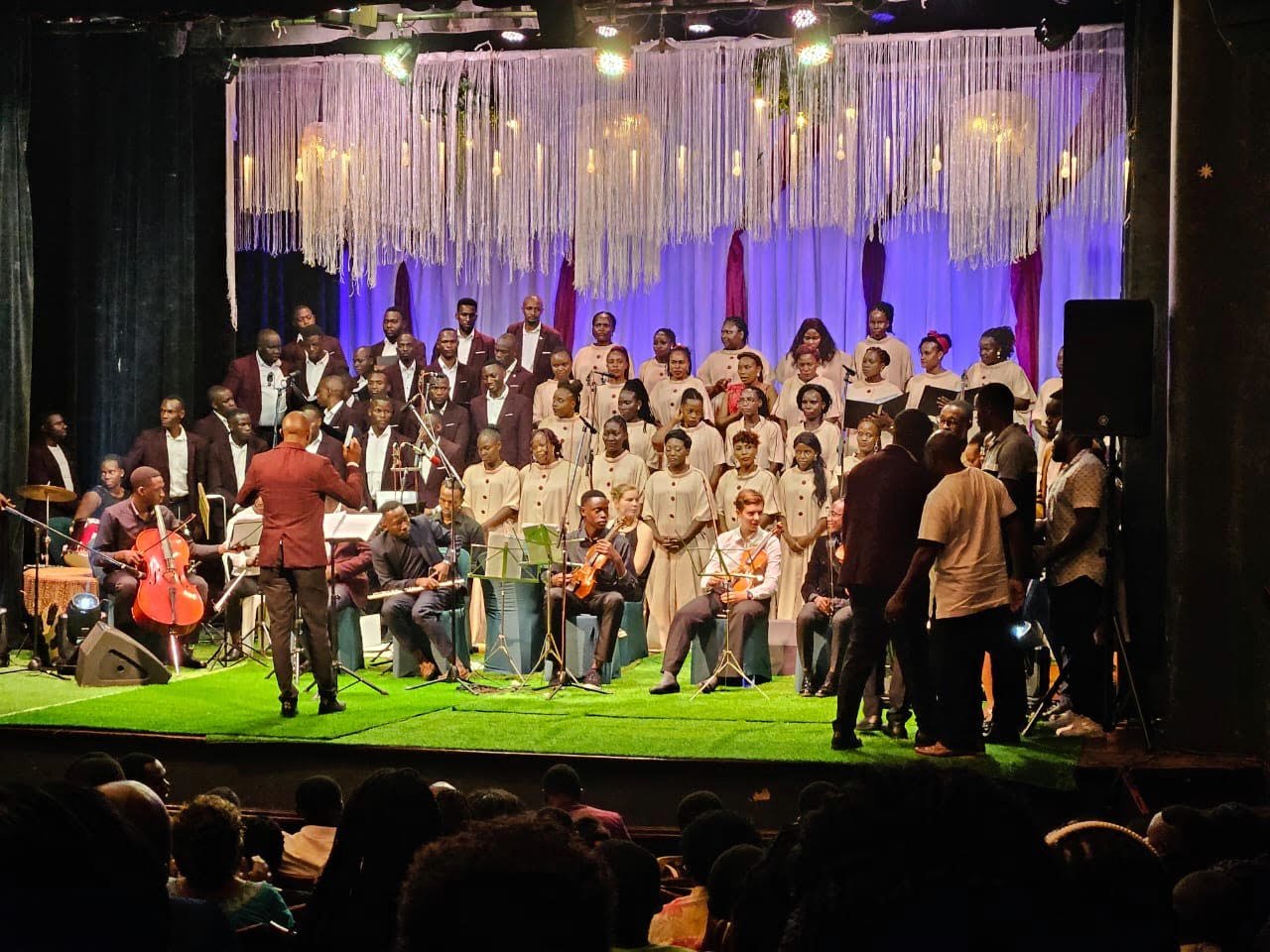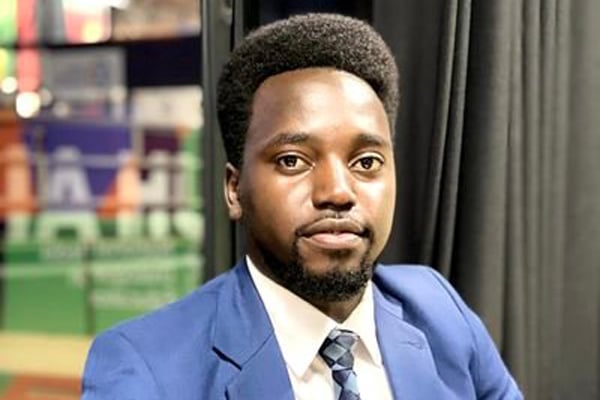Prime
St Francis Xaverian Choir basks in glory of 25 years

Members of St Francis Xaverian Choir Bweyogerere, perform at a function. The choir also ventured beyond Uganda, performing in Kenya on a few occasions, specialising in classical music pieces. PHOTO/COURTESY/PATRICK SSENTONGO
What you need to know:
- While initiating the Xaverian Movement in the parish, Frank Ssemukuye, a former student at Our Lady of Consolata Senior Secondary School, Kireka, Wakiso District, returned to the school and selected a few students from the choir: Mathias Ssonko, John Bosco Ssemakula (RIP), Charles Ssentongo, Baron Mugerwa, Sylivia Bateta Kisuule, Joseph Mbaziira, Lydia Ndagire (RIP), Miriam Lunkuse, Lydia Nabirye Kawere, Henry Devosh Kizito, Paul Kikongoliro Kato, Emmanuel Mbonye, Fredrick Ssekitoleko Kato, to join him in the movement.
In 1998, a group of parishioners from Our Lady of Consolata parish in Bweyogerere, including Stephen Kakuba, Dr Christine Kabugo, George William Bamujje, Thomas Mwanje (RIP), Dr Peter Ssali, and Mr Andrew Ssekikubo sought the permission of the then Parish Priest, Rev Fr Vedastus Kwajaba, to start an English Mass.
The primary concern was that the congregation had become cosmopolitan, and consequently, non-Luganda speaking members were leaving in search of English Masses elsewhere in parishes like Namugongo, Christ the King in Kampala, Mbuya, and Naguru. At the time, the parish, like many indigenous parishes, only had Masses in the Luganda local language.
Although Fr Kwajaba granted their request, one significant question loomed—who was to take the lead in the new Mass? The Xaverian movement, a lay apostolic movement within the Catholic Church earlier established in the parish and comprising teenage secondary school-going children at the time, was chosen. The movement, built on three pillars: Charity, Apostolic, and Education. It was approached by the church leadership and expressed interest in taking over the new English Mass in the parish.
Frank Ssemukuye, the current speaker of Kira Municipality, who had founded the movement in the parish, notes that they gladly accepted the task because it was an added advantage to fulfilling their apostolic pillar. This pillar called for total commitment to serving their mother Church through their shared passion for singing.
The birth of this English Mass, at 9am until this date, was the genesis of St Francis Xaverian Choir Bweyogerere. The choir’s melodious echoes have resonated for a quarter-century, marking a musical journey that has harmonised not only voices but also the diverse narratives of its members.
From humble beginnings within the Xaverian movement to triumphs on prestigious stages, the choir has evolved into a testament of resilience, unity, and artistic excellence. To celebrate its silver jubilee, the choir hosted supporters to a successful concert at the National Theatre on January 14.
Humble prelude
While initiating the Xaverian Movement in the parish, Frank Ssemukuye, a former student at Our Lady of Consolata Senior Secondary School, Kireka, Wakiso District, returned to the school and selected a few students from the choir: Mathias Ssonko, John Bosco Ssemakula (RIP), Charles Ssentongo, Baron Mugerwa, Sylivia Bateta Kisuule, Joseph Mbaziira, Lydia Ndagire (RIP), Miriam Lunkuse, Lydia Nabirye Kawere, Henry Devosh Kizito, Paul Kikongoliro Kato, Emmanuel Mbonye, Fredrick Ssekitoleko Kato, to join him in the movement.
He also recruited other youth, then commonly referred to as “Abasanyufu.’’ They included Madrine Kironde, Flavia Nanseera, Gerald and Henry Twine, Leticia Nakaye, Claire Nakafeero, James Mukasa, and Derrick Kalenzi.
The two groups, students and youths, later became founding members of the choir when the movement birthed a choir, thanks to parents who offered their children.
Under the steadfast guidance of Fr Julius Maina (RIP), the youth chaplain at the parish, the choir animated their very first Mass at the parish, followed by another, their second Mass on Pentecost day of 1998. By this time, their dream had come to reality. After inception, the movement bandwagoned choir chose their Patron Saint Francis Xavier to intercede for them and also took on his name as their choir name.
A few months after their creation, the choir had officially and consistently taken on the 9am Mass that was in English. The faithful, who would move to other parishes for English Mass, had now found solace in it.
The choir’s very first board of trustees was formed from within the Mass congregation to support the then junior choir. Among the first Board of Trustees were George William Bamujje (chairperson), Dr Christine Kabugo, Stephen Kakuba, Andrew Ssekikubo, and the Late Thomas Mwanje (Xaverian Patron), among others.
Joseph Kikomeko Ssebwaato, one of the longest-serving chairpersons of the choir, says he joined it three years after its inception. This was after his friend Mathias Ssonko Mulyowa, one of its founding members, persuaded him into joining. Ssebwato emphasises that these men and the woman on the choir board truly stood by the new choir through thick and thin.
“With their support, the choir secured necessities like hymn books, uniforms, among other things. The board also sourced the choir’s founding music director—Ms Grace Pulle—from Bbiina Parish to assist in professionalising vocal production,” he says.
A founding member, Mathias Ssonko Mulyowa, recalls that starting out, they were only a group of enthusiastic individuals bound by a shared love for music and a deep connection to their faith.
“We started with just a handful of members who shared a common dream—to lift our voices in unison and spread the joy of music within our community and church,” he recalls, adding that with perseverance, the choir overcame initial challenges.
Joy in every note
The early 2000s marked a transformative period for the choir, with the inclusion of new members who joined the movement. Primarily composed of students pursuing further academic endeavours and employment opportunities, this influx reshaped the choir’s dynamics.
During this time, the youth chaplain in the parish, the late Fr Charles Jaggwe, assumed the role of curator for the choir. He played a pivotal role in securing key musical trainers for the choir. Under his guidance, in 2009, the choir successfully recorded its inaugural 10-song album titled Lord Here We Are.
The well-received album fuelled the choir’s growth, providing the necessary resources to acquire essential equipment such as amplifiers, keyboards, and speakers, thus elevating the quality of their performances. Fr Jaggwe successfully persuaded Godfrey Lubuulwa, a music trainer and producer of the choir’s album, to join the team.
Two years later, in 2011, the choir released its second album—Sing to the Mountain—solidifying its musical prowess.
In 2016, celebrating 18 years, the choir had achieved remarkable progress, winning music competitions at parish, deanery, and diocesan levels. Encouraged by their success, they ventured into organising an outside concert beyond their parish walls. Their first significant show took place at the National Theatre in January 2016, marking the beginning of what would become the annual music concert series.
Bittersweet
Despite initial concerns that their church-oriented followers might not attend a concert in a secular space, the event turned out to be a success.
This, however, brought with it challenges. Internal disagreements during the event led to the departure of key members, including Lubuulwa, a crucial technocrat on the team. Amid the grief and uncertain future, Robert Lujju emerged as a unifying force, resolving internal issues and guiding the choir back to stability.
In 2017, under Lujju’s leadership, the choir organised their second concert, returning to their parish for stability. In 2018, they once again graced the National Theatre for a concert, now under the leadership of Dr Benjamin Kateregga. A composer and writer, Dr Kateregga successfully led the choir through 2019 until the onset of the Covid-19 pandemic.
With the closure of churches due to the pandemic, the team faced challenges in sticking together. Upon the reopening of churches in 2022, they experienced a revival year. Despite opting not to hold a concert, they chose to celebrate their 25th anniversary with a performance at the National Theatre on January 14.
Milestones and future
Amid challenges, they remained steadfast in their choir endeavours. Some members entered into marriage. In the mid-2000s, the parish initiated music competitions to enhance the quality of church music, and their choir emerged victorious in all of them.
The choir also ventured beyond Uganda, performing in Kenya on a few occasions, specialising primarily in classical music pieces. It also used proceeds from its two music albums and concerts to acquire equipment.
Choir members have graced private events, notably performing at the wedding of pop star turned politician Robert Kyagulanyi, alias Bobi Wine.
Noteworthy is the fact that some members sanctified their marriages within the choir. The choir hosted two Catholic priests, Fr Joseph Bakka and Fr Solomon Kavuba. Many members pursued higher education, transforming the choir into a composition of professionals, including lawyers, teachers, engineers, doctors, etc.
Beyond musical accomplishments, the choir expresses gratitude for the guidance provided by older choirs like St Cecilia Choir Bweyogerere and St Charles Lwanga Choir Bweyogerere.
Presently comprising more than 70 members, the choir’s longevity, Ssebwaato says, can be attributed to the unwavering bond among its members.
It is essential to remember some of their own who have died along the way. Deeply remembered are John Bosco Ssemakula, the first to pass on, as well as Olivia Nakyejwe, Fr Jaggwe, Grace Ssaka, and the Xaverian patron Thomas Mwanje, among others.
As St Francis Xaverian Choir embarks on the next phase of its musical journey, the echoes of their melodies continue to resonate through their parish and the Kampala Archdiocese at large. The choir remains dedicated to its mission of bringing the gift of music to the hearts of the community and beyond.
Harmony in hardships
Limited resources, a lack of trainers in their formative years, the struggle to acquire musical instruments, and the ebb and flow of members’ commitments tested the resilience of the choir, ultimately affecting their singing quality.
“There were times when we had to make do with borrowed instruments, and our practice sessions were often interrupted by the demands of our daily lives. But through it all, the music held us together,” Joseph Kikomeko Ssebwato, one of the longest-serving chairpersons of the choir recalls, adding that the pandemic also knocked the choir sideways.
Despite the choir flourishing in the heights, other Xaverian Movement activities like charity, church ushering, and maintenance were inevitably overshadowed.
The choir’s commitment to sticking together through thick and thin has been a driving force in overcoming challenges and sustaining the musical legacy they have built over the years.





